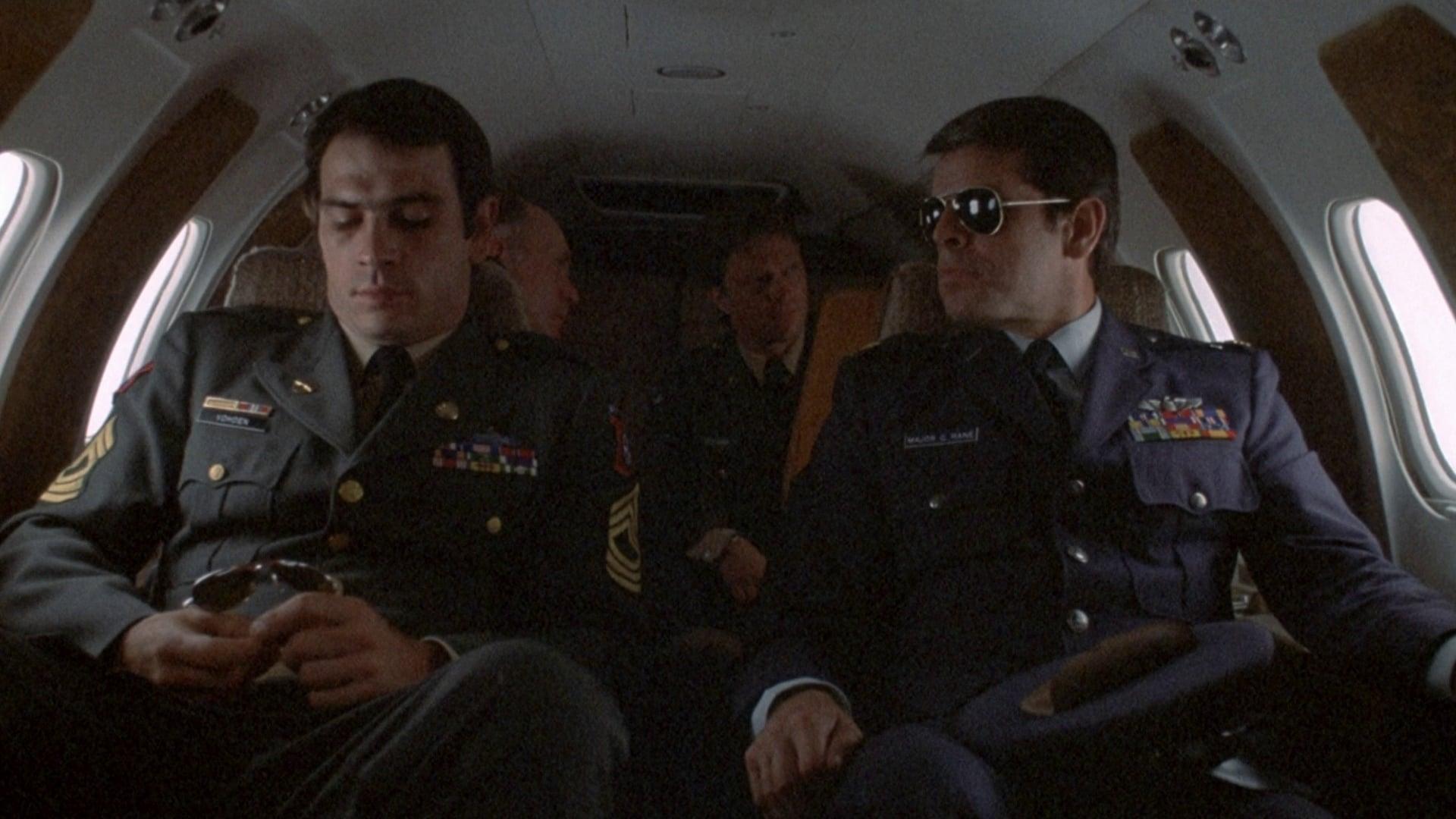Rolling Thunder is a 1977 action-drama film directed by John Flynn. The movie stars William Devane as Major Charles Rane, a Vietnam War veteran who returns home after being held as a prisoner of war for seven years. The film explores Rane’s struggles to adjust to civilian life and his quest for revenge against those who wronged him and his family. I loved this movie when I first saw it in my tweens. I’ve watched it a few times since, and it’s still a very good movie.
Rane returns home to a hero’s welcome after being released from captivity in a Vietnamese POW camp. However, his homecoming is marred by his physical and emotional trauma. He finds that his wife has moved on during his absence, and he struggles to reconnect with his son. His life takes a tragic turn when a group of criminals invades his home, looking for a cache of silver coins that he received as a reward for his military service. The criminals brutally torture him in order to get information about the coins. Surviving the attack, he is fitted with a prosthetic hook for a hand. This is the only part of the movie that I disliked. The prosthetic used by the actor was comical and at times distracted me from enjoying the film in its entirety. Despite that one gripe, I love this movie.
Director Flynn later explained, “The first 20 minutes of the film were placid by design — Devane’s homecoming, reunited with his family. Then violence overtakes this family. In the space of two minutes, Devane’s hand is ground off and his wife and son are shot dead before his eyes.”[5]
The preview audience did not react well to this. In his book, Adventures in the Screen Trade, William Goldman characterized this as “the most violent sneak reaction of recent years … the audience actually got up and tried to physically abuse the studio personnel present among them.
Alongside his friend Johnny Vohden (played by Tommy Lee Jones), who is also a fellow Vietnam veteran, Rane embarks on a mission of vengeance to track down and eliminate those responsible for the heinous crime. The film follows their journey as they confront the criminals and seek justice. Rolling Thunder is known for its gritty portrayal of a veteran’s struggles with reintegration, trauma, and the desire for revenge. It’s a cult classic that offers a unique perspective on the challenges faced by returning soldiers and the psychological toll of war. Now, let me tell you–I never knew until this week that the movie made movie critics Gene Siskel and Roger Ebert’s 1977 top ten list. Filmmaker Quentin Tarantino has called Rolling Thunder one of his favorite films. There is a lot to like about this movie.
When “Rolling Thunder” hit the theaters in 1977, audiences were treated to a raw and intense cinematic experience that explored the harrowing aftermath of war and the quest for justice. Directed by John Flynn and featuring a standout performance by William Devane, the film left an indelible mark on those who ventured into its gritty world. One of the aspects that drew attention was the movie’s exploration of revenge. Rane’s transforms from a shattered hero to a determined avenger. The scenes of Rane and his comrade Johnny Vohden meticulously planning their vengeance against the criminals who wronged them captivated audiences, offering a cathartic release of pent-up emotions.
The film’s reception was mixed. The movie didn’t fit neatly into any predefined genre. It was part revenge thriller, part character study, and part exploration of post-war disillusionment. Some critics praised its unapologetic approach to depicting violence and trauma, while others found fault with its occasional pacing issues. What truly cemented Rolling Thunder as a cult classic was its authenticity. The film’s attention to detail and its commitment to depicting the struggles of veterans without glossing over the harsh realities of war earned it a devoted fan base. William Devane’s portrayal of Rane was often singled out for its depth and nuance, showcasing the character’s inner turmoil with remarkable sensitivity. One of the best scenes is the ending scene where they go into the house of prostitution to get revenge.
Decades after its release, Rolling Thunder continues to be a film that sparks conversations and resonates with audiences. Its exploration of the psychological toll of war and the quest for redemption remains relevant, making it a timeless exploration of human endurance and the lengths people will go to reclaim their dignity.
*The views and opinions expressed on this website are solely those of the original authors and contributors. These views and opinions do not necessarily represent those of Spotter Up Magazine, the administrative staff, and/or any/all contributors to this site.

